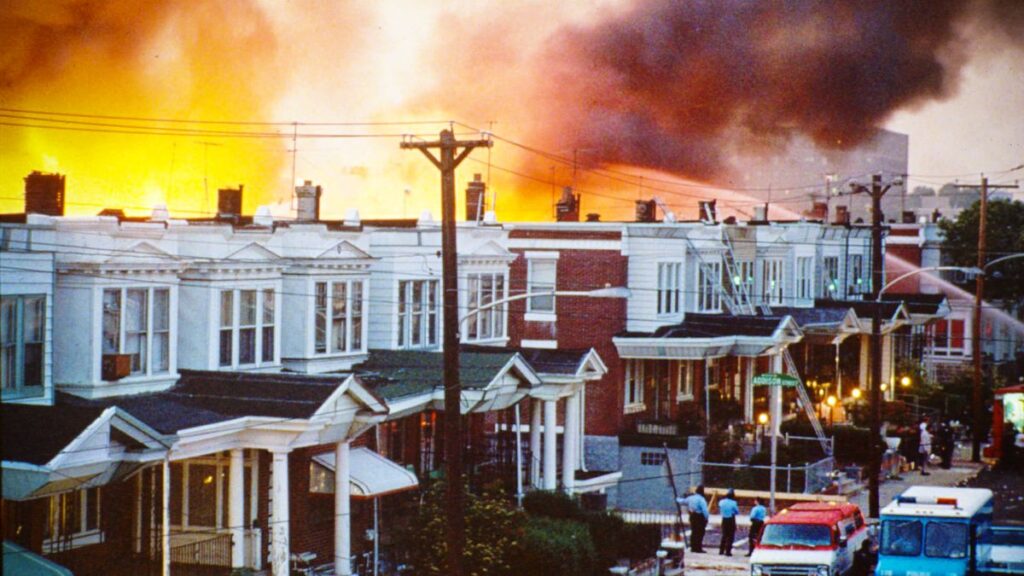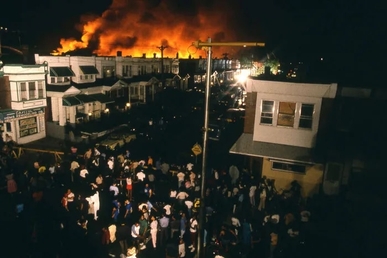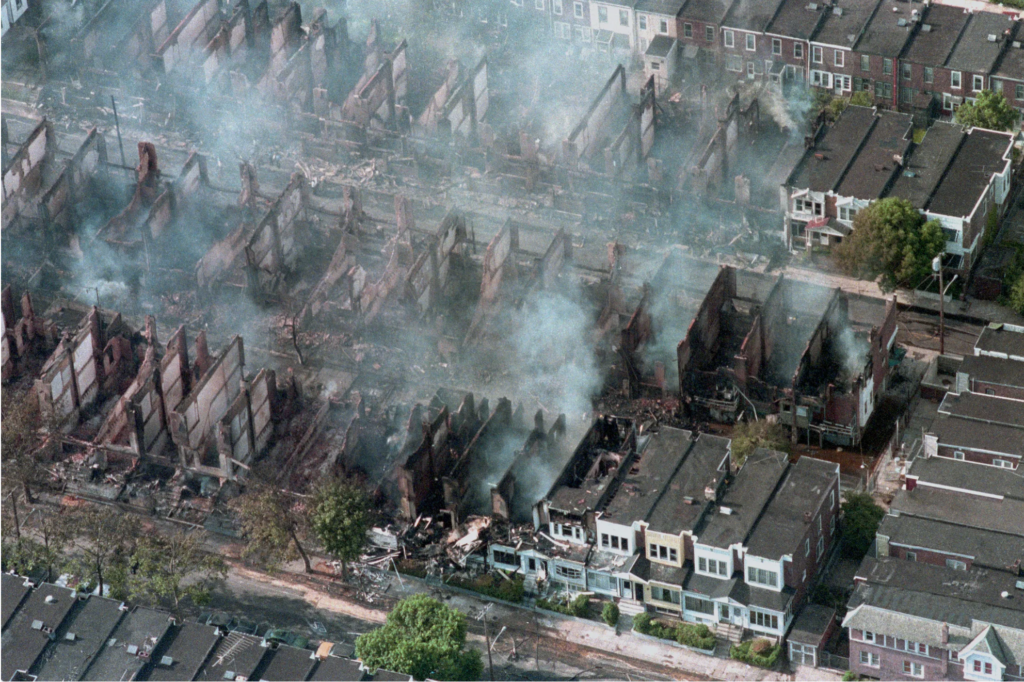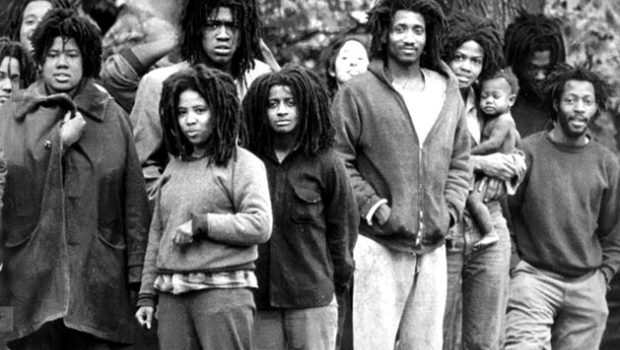
In 1985, the bombing in West Philly that claimed the lives of 11 individuals and displaced 61 families served as a harrowing wake-up call for Philadelphia. The incident spotlighted deep-rooted tensions between the city’s police force and the radical group MOVE, triggering a nationwide conversation on institutional racism and police brutality. The escalating conflicts between MOVE and city officials culminated in a violent confrontation during a police raid, leading to conflicting reports, the use of force, and allegations of firing on unarmed women and children, ultimately ending in the catastrophic bombing.

The aftermath of the 1985 West Philly bombing involving the MOVE organization highlighted institutional failures, a lack of accountability, and the profound impact of the tragic events on the city and its residents. It underscored the need for accountability and justice in the face of unresolved conflicts and systemic issues, implicating broader societal dynamics and prompting critical conversations about systemic change and historical injustices
This was the first time I learned about the West Philly bombing, and I was very surprised. Learning about historical events is essential and alters our perception and understanding of the world. It opens us up to understand systemic issues, fosters empathy, encourages critical thinking, and inspires a commitment to accountability and justice to avoid similar tragedies in the future. Also, exploring historical tragedies offers a lens through which to view the world with awareness, empathy, and a critical understanding of societal dynamics that continue to shape our lives.

The tragic saga of the West Philly bombing offers profound insights into critical aspects of justice, underscoring the need for accountability, transparency, and the imperative for systemic change to prevent similar tragedies and promote a fairer, more equitable society.

I think a social worker’s role in the aftermath would encompass a comprehensive approach to promote healing, rebuild trust, and advocate for accountability. This would involve providing trauma-informed support, legal advocacy, facilitating community reintegration, and initiating constructive dialogues to address grievances and foster reconciliation. Social workers could also establish trauma support groups, organize community healing events, collaborate with local authorities on safety measures, and initiate mediation and peace building efforts to address tensions and rebuild community among the affected neighbors. These strategies would contribute significantly to the healing and reconciliation of both MOVE members and the affected neighbors, ultimately fostering a sense of resolution and recovery after such a devastating event.
Sharla Huckabey
Maren, I enjoyed reading your blog. Like you, this is the first I heard of the day Philadelphia bombed its own people. I learned a lot reading your blog and explored more on the internet. To think that people would bomb people in their town is devasting—such a senseless reason to take people’s lives from them.
I am very familiar with the pain of the deadliest act of homegrown terrorism in U.S. history. I lived 30 miles from the Alfred P. Murrah Federal Building, which Timothy McVeigh and Terry Nicols bombed. I was working at Union National Bank in Chandler, OK. When the bomb went off, killing one of the bank’s board members’ daughter. It was devastating to us all. The news of Susan Ferrell’s passing shook our little town. That day, 169 lives were taken at the hands of another.
Unlike the Philadelphia bombing, where no one was criminally charged for such a violent act committed. Timothy McVeigh was sentenced to death, and Terry Nicols was sentenced to life in prison. It is really sad how the police who bombed the people of the MOVE organization did not receive any punishment.
I agree with you that the role of social workers in the aftermath would promote healing.
I do not mean to take any light away from the subject of your blog by bringing in another bombing. I couldn’t help but think back to April 19, 1995, when I read about this.
Simone Smith
I appreciate your blog Maren, thank you! This is the first time I’ve learned of this too. It just goes to show you how deep the injustice goes… imagine if Move were the ones to bomb a police department! We definitely would’ve learned about that, and like Sharla pointed out, they would’ve been held responsible. Nothing surprises me anymore honestly. Our country is a lie in my mind now, and there’s just more and more that is exposed. I really want to focus on looking at my social work career through an abolitionist lens and it’s learning things like this that have lead me to become an abolitionist.
Neveah Reese
I couldn’t have written it better. You hit the naill right on the head when discussing a social workers role following a traumatic event such as this one. A huge piece of this story that I think is important to mention is the distress and distrust the members of the MOVE organization felt towards the local and state governments and systems. How does one begin to rebuild this trust in a community? Through advocating, trauma informed care, and social justice people can hopefully begin to move forward.
Robi Naranjo
Thanks for sharing your blog and insights with us. What a sad situation. It was hard watching the video, especially at around 20 minutes in when the police officer justifying and just the dehumanization is crazy. The takeaway I got from it was we should stand up for injustice and something has got to be done about the sentiment some police force feel towards the people they serve, like how bad does it have to get before a police force bombs American citizens.
Bell Voseberg
This was super informative; it was my first time hearing about the bombing, and that made me feel very upset. I feel like I should have learned about this in school at least. The video was hard to watch sometimes, but I felt the hurt and anger in the man’s voice when he said the city was killing us alone; just now, they can’t do it in secret anymore. I also want to say your blog was visually appealing.
Jaelynn Anderson
This was my first time hearing about the bombing as well. It’s appalling to me that the city decided to go to such harsh methods of removing the group. It could’ve been much more civilized than what had happened. It makes me upset that this occurred, but the only thing we can do now is learn. Spread awareness of this horrid situation and hope that there isn’t a repeat in history. As far as social work goes I completely agree with you in every aspect. In ways of preventing a similar situation from occurring again and helping those affected by the traumatic event.
Alex Beaudouin
Hi Maren,
The 1985 West Philly bombing was a tragic event that had significant repercussions on the community and law enforcement practices. The bombing of the MOVE organization reflected the long-standing dispute with the city over poor living conditions. This tragic event remains a painful chapter in Philadelphia’s history, serving as a reminder of the need for justice, transparency, and meaningful reform in law enforcement practices. It stands as a symbol of the importance od addressing systematic issues and promoting accountability to prevent such tragedies from happening again.